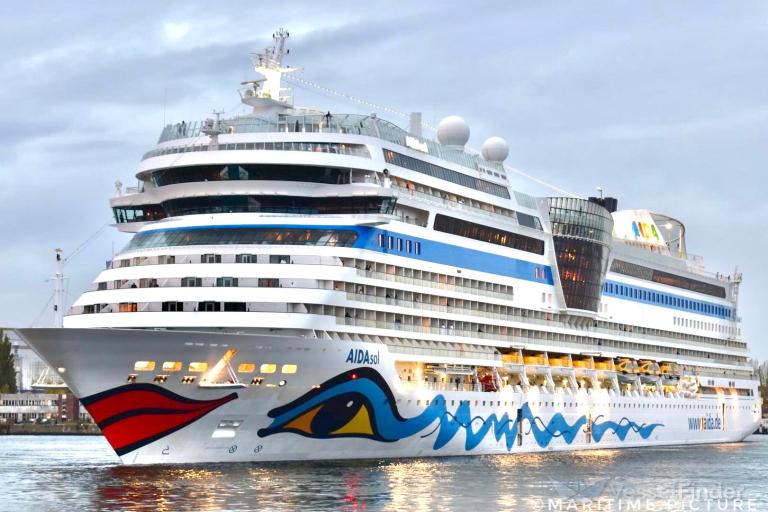Reality check: data from Nium shows that flight cancellations aren’t really hitting overall bookings – but that doesn’t mean that the situation isn’t having a wider impact on travel, for better and worse

Reading the news headlines of ‘air chaos’ recently in Europe and North America you’d be under the impression that no-one is arriving at their destination.
But how many flights are really being cancelled as a percentage of the total? Is this leading to hotel cancelations too? And what is the wider impact for the travel industry?
Spencer Hanlon, Global Head of Travel Payments at B2B payments provider Nium comments:
“We process significant volumes of B2B payments between tour operators or travel agents to settle with airlines and hotels around the world, particularly Europe and North America – and when a refund takes place we know about it. The reality is that, despite all the negative news, refunds of both flights and hotels in June were only a tiny bit higher than May’s, at 1.87% vs 1.73%.
“And for what we’ve seen for July so far that has only increased again a tiny amount, with us estimating that July will see cancellations move up to just 2.38% (less than one in 40 bookings). If that sounds high consider that these figures are aligned with what we’d have expected for a summer pre-COVID.
“Nonetheless, with further disruptions planned for this summer in the forms of strikes and many big airlines cancelling massively – evidently travel sellers and travel providers need to be braced for increases in refunds. For a lot of travel businesses – be they an intermediary or a provider – refunds are problematic not just because of lost revenue but because of the administrative headache involved.
“The smart companies have now long-since digitized and streamlined their payments and refunds processes, allowing them to cope with such volatility. But there’s still time to change, who knows that kind of volatility could be round the corner?”
Carlos Cendra, Director of Marketing & Sales at travel intelligence provider Mabrian comments:
“This data from Nium broadly fits with what we are seeing in terms of airline scheduling. Yes, there’s a very high number of flights being cancelled across Europe in absolute numbers, but in terms of the overall percentage of flights being cancelled the figures are quite low.
“Looking at recent cancellations of scheduled flights by comparing 14th June’s schedule to 28th June’s for flights from 1st to 15th July, the highest rate we’ve seen is for easyJet, which had cancelled around 5% of flights – but for some airlines, such as Air Europa that figure has been as low as 0.5%. Consider also that many of those whose flights were cancelled are being put onto alternative flights, so most will still be arriving.
“One issue that its potentially very concerning though is that the delays – or even simply just the perception or risk of delays – could lead to travellers having entirely unfair and unjustified negative perceptions about the destinations they are travelling too. This would impact their chances of returning to that destination or recommending to a friend. We’re keeping a close eye on social media monitoring tools that we have to see how visitor perception of destinations is evolving in relation to the news about air delays.”
Alice Ferrari, Founder & CEO of Kyte, an API used by airlines to sell NDC content, comments:
“Flight disruptions this summer are happening in unprecedented volumes with a major impact on travellers. Delays, missed connections, and lost luggage are causing a lot of stress for passengers going on their long-awaited holidays. Unfortunately airlines and suppliers have had to balance cost reductions to survive the pandemic, whilst trying to predict the return of demand for travel. Clearly traffic did not return gradually which caught the industry quite unprepared for the underlying challenges leading to the need for cancelations and delays.
“Current shortfalls highlight the need for much better tools to handle basic customer service. There is so much opportunity to bring in technology that enables seamless rebookings, provides passenger updates on information digitally in real time, automates refunds where needed, offers travellers options such as alternative routes via an app, uses AI and bots to respond to simple enquiries, and much more.
“What is the only way for such systems to work? They all need to be able to connect and exchange information.
“Whilst the airline industry is often criticised for poor technology and slow innovation, people often fail to remember how deeply complex and interlinked each system is and how all systems depend on one another. Often this is the route cause for the slow implementation of modern tools.
“At Kyte we envisage a world with no more queues or agents at a counter processing each passenger manually. However, we are not far from a world where travellers can self-serve and manage their alternative options on their own devices. The evolution is happening, but slowly.”
Leyla Allahverdiyeva, CSMO from RoadRunAir, a private jet tour operator, comments:
“Travelers do seem more concerned about cancellations, loss of luggage and delays when booking their holidays right now – that we are hearing loud and clear from our travel advisor partners. Because of this recently we have seen an even higher pick up in both enquiries and bookings, as travel advisors know we use private airport terminals and our own private jets – and their clients feel more reassured by such an experience.”
Fabian Gonzalez from Forward_MAD, a luxury tourism conference taking place in Madrid this October, comments:
“Overall the luxury sector isn’t so worried about the cancellations and delays as the package holiday, mainstream tourism part of the industry is.
“Why? Firstly because the problems are mostly focused around the low-cost carriers such as easyJet and Ryanair; and secondly because it is the fly-and-flop package destinations that are being hit hardest. So in both cases luxury travellers tend not to be the target market.
“When we look at Madrid, for example, the top outbound destinations for luxury travellers are places like the Middle East, New York or Los Angeles in the US, or Mexico and Colombia in LATAM. Those travellers arrive with legacy carriers and these routes are profitable, so the airlines aren’t cutting there yet.
“Meanwhile the traditional private jet companies are in good shape and ready to break another record year, while new business models and startups in the private aviation segment are definitely gaining traction thanks in part to this chaos.”
Learn more about Nium
Have your say Cancel reply
Our emails to you has bounced travelmole.com Or You can change your email from your profile Setting Section
Your region selection will be saved in your cookie for future visits. Please enable your cookie for TravelMole.com so this dialog box will not come up again.
Price Based Country test mode enabled for testing United States (US). You should do tests on private browsing mode. Browse in private with Firefox, Chrome and Safari
You can see how this popup was set up in our step-by-step guide: https://wppopupmaker.com/guides/auto-opening-announcement-popups/
You will be requested to do this only once, unless you do not allow cookies, in which case, please whitelist TravelMole.com for cookies on your desktop browsers or mobile/cell browsers
Your region selection will be saved in your cookie for future visits.

 United Kingdom
United Kingdom United States
United States Asia Pacific
Asia Pacific

























BA flight attendant taken off duty after boozy altercation
Passenger attempts suicide on Bangkok-London flight
Ship crew member arrested after stabbing attack
Report: Viking Sky outage could have been ‘one of the worst disasters at sea’
Spain hits Booking.com with record €530 million fine